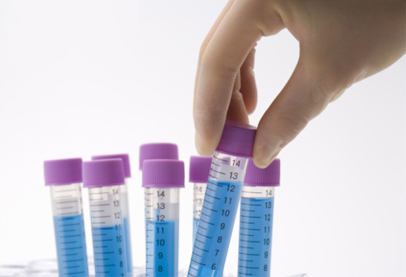
 |
| (File photo) |
WASHINGTON, Jan. 28 (Xinhua) -- A team of U.S. researchers have identified a number of new genes that are frequently mutated in uterine serous carcinoma (USC) -- a chemo-resistant, aggressive form of endometrial cancer, according to a study published online Monday in Proceedings of the National Academy of Sciences.
The team collected tumors from 57 women affected with USC to try to determine the molecular basis of the tumor's aggressive behavior. They sequenced all the genes from the tumors and identified mutations that are crucial for these tumors to grow. The team also studied the copy number variations -- genes that are not mutated but are amplified in the tumors to give them a growth advantage over normal tissues.
The newly-identified cancer-related genes included two -- CHD4 and MBD3 -- that are found in the same protein complex and play a role in remodeling the genome to allow certain regions to be turned on and off. The discovery of a third gene, TAF1, was a surprise to researchers because it is a core component of the machinery responsible for transcribing a large fraction of the protein coding genes in the human genome.
"We have clearly identified the mutations that are responsible for USC tumors," said senior author of the study Alessandro Santin, professor at Yale School of Medicine. "This finding points to new pathways that could be important in developing therapies down the road."
Endometrial cancer is the most prevalent gynecologic tumor in women, with over 47,000 newly diagnosed cases and about 8,000 deaths in 2012 in the United States alone. Patients with type I endometrial cancer tumors generally have a good outcome, but those with type II, or USC, have more relapses and deaths, and the disease is more aggressive.
















 Buildings collapse after subsidence in S China
Buildings collapse after subsidence in S China


![]()
